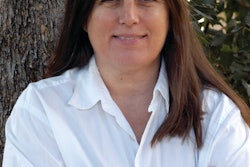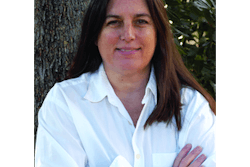Taking a cue from the software industry, scientists, farmers and sustainable food advocates at the University of Wisconsin-Madison have released what they’re calling the Open Source Seed Initiative (OSSI) with a goal “to keep [its] new seeds free for all people to grow, breed and share for perpetuity, with the goal of protecting the plants from patents and other restrictions down the line.”
In other words, breeders and farmers can do what they like with the seeds, but they can’t turn the results into a proprietary product.
According to this Voice of America story, the group released 29 new varieties of broccoli, celery, kale, quinoa and other vegetables and grains just last week to kickoff the initiative.
“We’re letting people know diversity is threatened,” said Jack Kloppenburg, a University of Wisconsin-Madison professor of community and environmental sociology.
He added that through the widespread use of seed patents, the world is facing a “freezing of a genetic landscape” for seeds. Until relatively recently, plant breeders regularly shared their plants and seeds openly and through this sharing, developed better breeds.
Andy LaVigne, the president of the American Seed Trade Association, which promotes the “research, development and movement of quality seed to meet the world's demand for food, feed, fiber and fuel,” didn’t agree with Kloppenburg’s assessment.
“I don’t think there’s any lockdown on any seed or diversity,” said LaVigne. “I think there’s a lot of competition but many seed traits, such as pesticide resistance and resistance to common diseases, are dominated by the companies.”
Monsanto, along with other seed giants Sygenta and Dupont own a whopping 53 percent of the worldwide seed market, according a Center for Food Safety report.
“Genetically, we’re putting all of our eggs in one basket,” said Kloppenburg, adding that the giant seed companies mostly work with a “narrow range of crops and techniques, narrow varieties and narrow traits,” such as pesticide resistance. Kloppenburg said that huge seed companies like Monsanto and DuPont are starting to use the same methods they used for big crop plants like corn and soybeans on vegetables, fruit and small grain seeds.
“These vegetables are part of our common cultural heritage, and our goal is to make sure these seeds remain in the public domain for people to use in the future,” said Irwin Goldman, a University of Wisconsin-Madison horticulture professor and plant breeder in a statement.
While the OSSI remains a tiny initiative compared to a company like Monsanto, the members hope they will at least raise awarenes.
"Who knows what will happen, but even if the pledge does nothing more than help raise awareness about what's going on with seeds, that's progress," said Goldman. OSSI members first tried to develop a licensing system for the open source seeds but opted instead for a simplified approach, the Open Source Seed Pledge, which will printed on every packet of seeds.?
For its part, Monsanto, the world’s largest seller of seeds, said it wished the OSSI luck.
“We believe that everyone growing vegetables – from home gardeners to farmers large and small, organic, conventional or using genetically modified seeds – have a choice when it comes to their seed purchase, said Monsanto spokesperson Carly Scaduto in an emailed statement. “We believe this University of Wisconsin project enables even more choices in the vegetable seed marketplace. We wish the University of Wisconsin project all the best in this new endeavor.”
To read more, click HERE.

















